Twitter might not be the first place you'd think to look for enlightenment. But there is opportunity to develop self-knowledge, or atmabodha, in our every action, including through our time on social media. Within the never-ending practice of self-study, we find the spiritual liberation and courage to make positive changes within our lives.
Here are six quotes we discovered on Twitter that offer inspiration for transformative actions and thoughts.
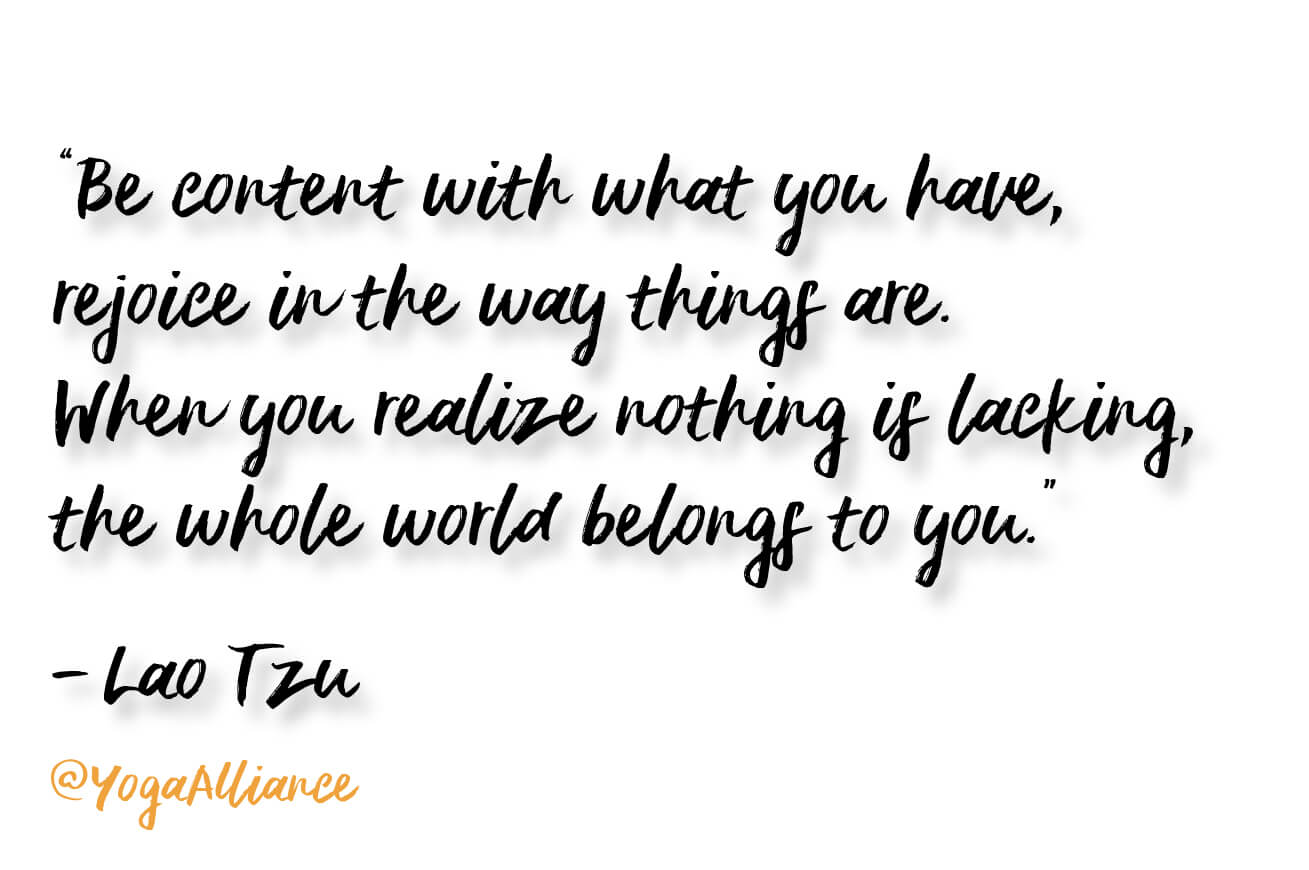
How do you practice gratitude? There are endless possibilities to practice appreciation in your own way and feel empowered by your own abundance. Then we’re able recognize each challenge or difficult time in our lives as opportunities for growth and gratitude.
(For some drafts on what to be more grateful for, read Give Thanks, Get Gratitude: 3 Reasons We're Thankful for This Mindfulness Practice.)
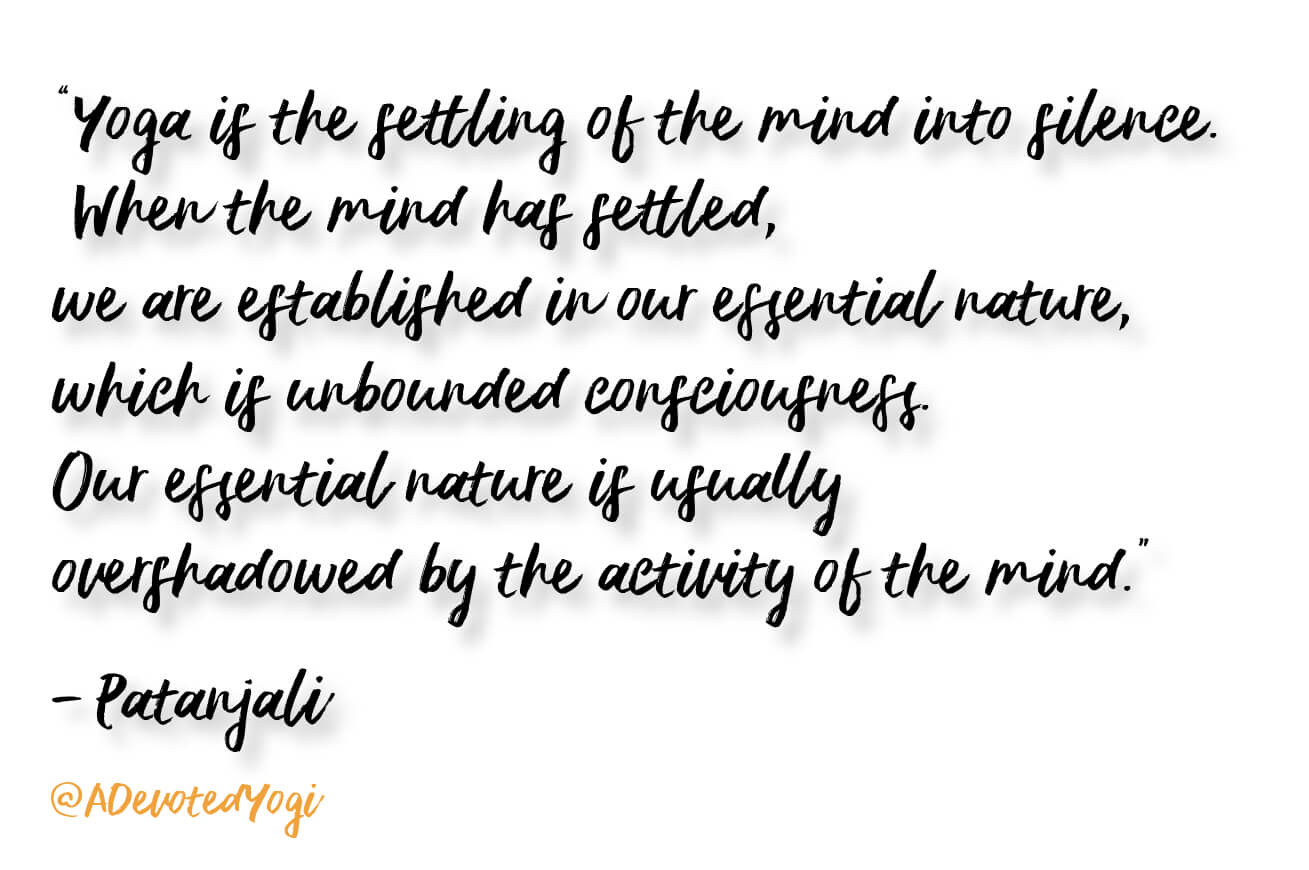
Settling into silence is no easy feat. But, when we’re able to let go and discipline the mind, we connect with the all-knowing part of ourselves. Yoga is more than physical asanas. Try Taking Silence Breaks Throughout Your Day and become more mindful to the changes within your life.
(For even more reasons why you should practice silence more, read “Shhh: 5 Life Lessons You Learn By Staying Silent.”)
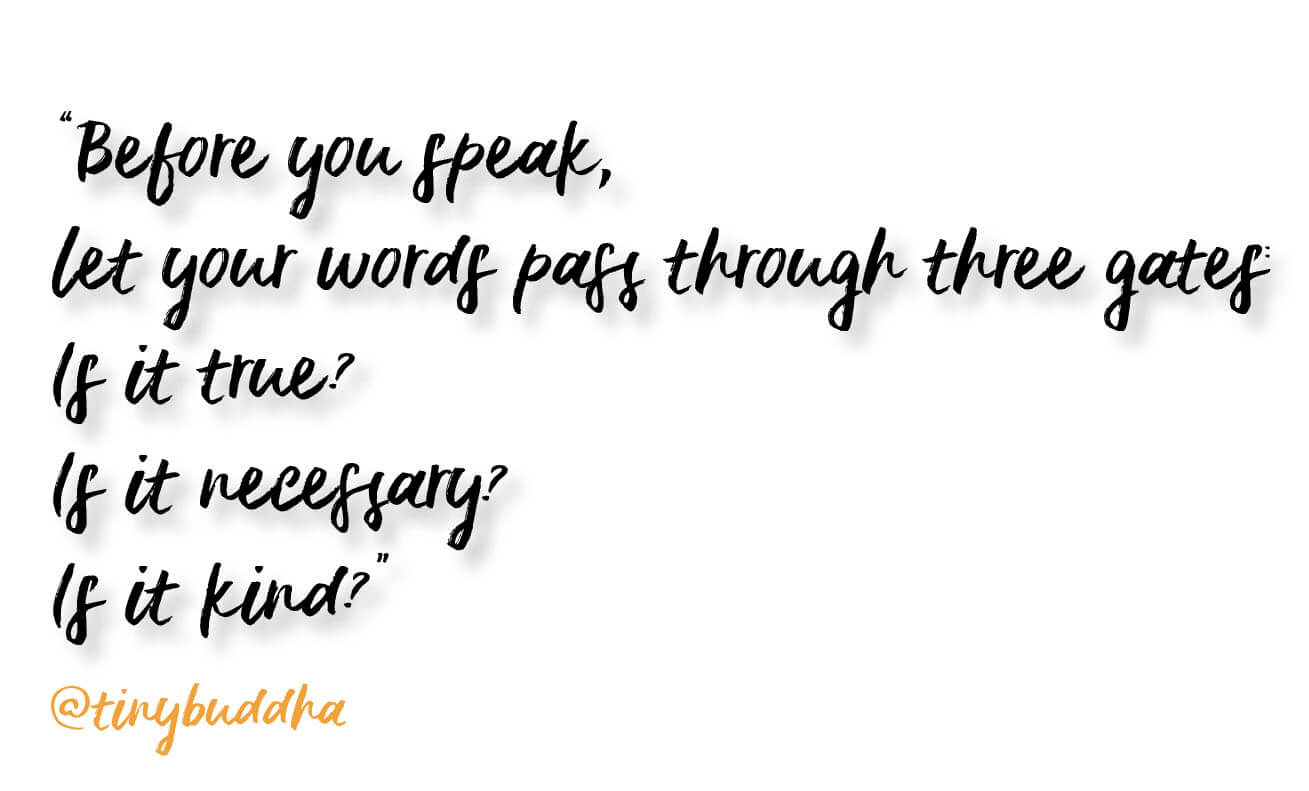
When we practice ahimsa, we are in the practice of “non-violence” or “non-harming.” Ahimsa is essential to every aspect of our lives — our thoughts, words and actions — if we aim to "walk the spiritual path." Furthermore, try considering your self-talk and aligning your thoughts with this quote's "three gates."
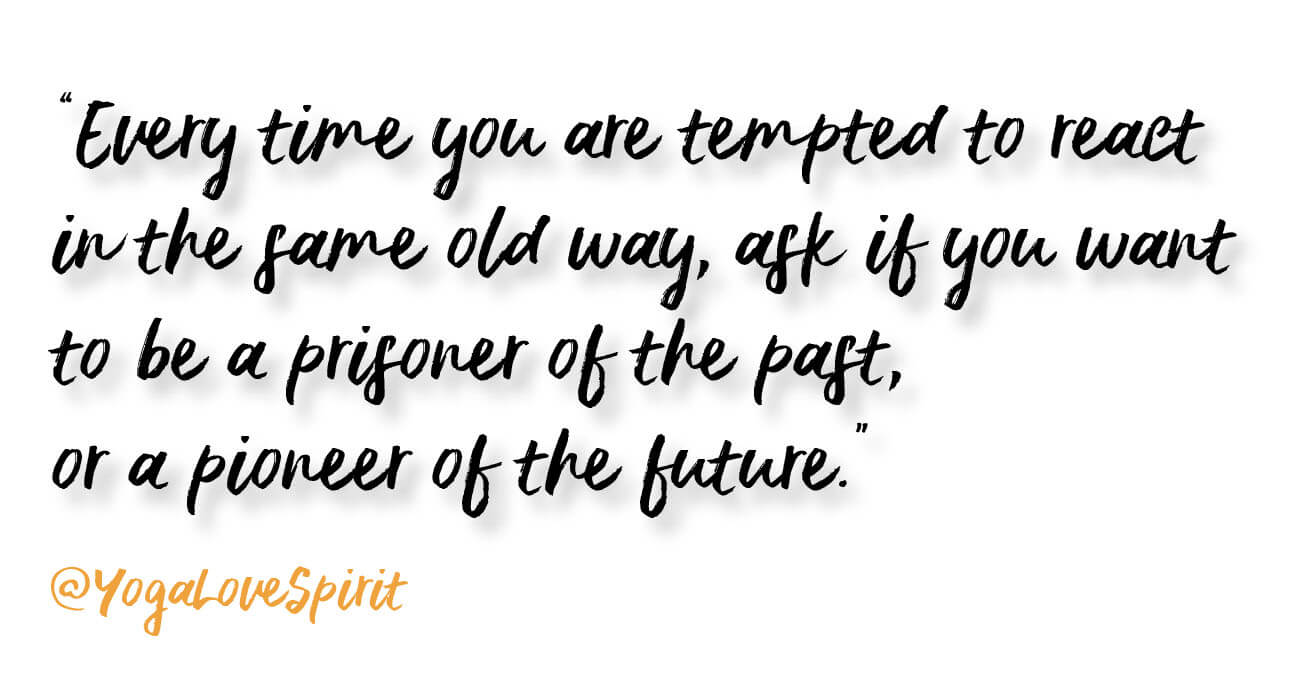
Do you live within the power of choice? All of our decisions, in thought or action, determine our experiences of every moment in a day. We can learn to live consciously by choosing love over fear, to improve our experience of life and the lives of those we surround ourselves with.
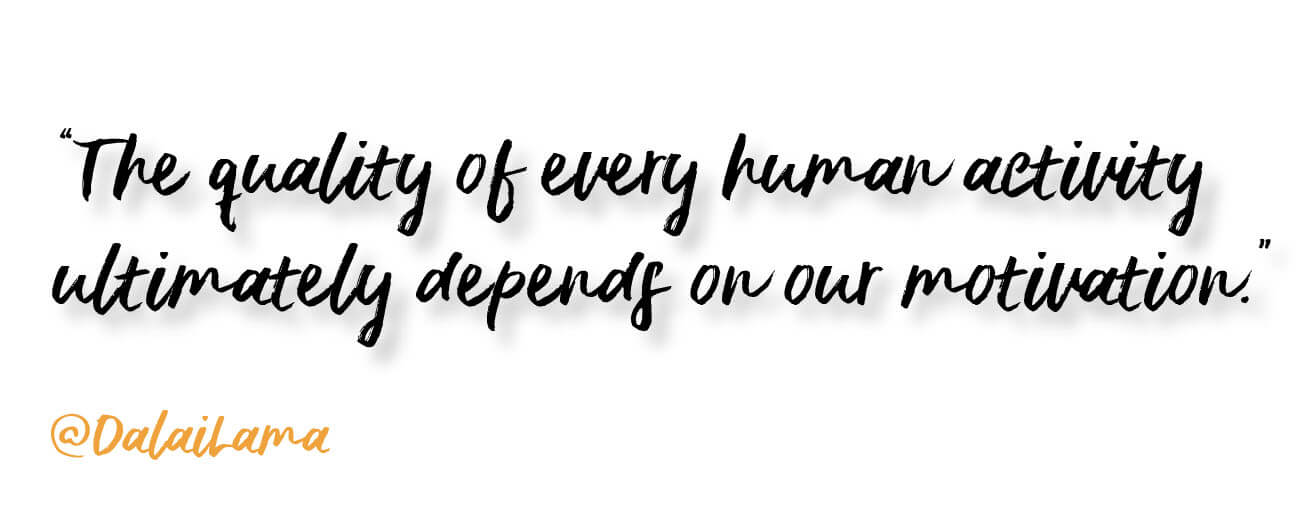
We can understand this quote within the context of parigraha. Parigraha is the concept of greed and possessiveness. Sage Patanjali suggests that parigraha distracts from positive motivation, and that "the yogi should do good because it is the right thing to do, not because of material reward or even a sense of self-satisfaction.”
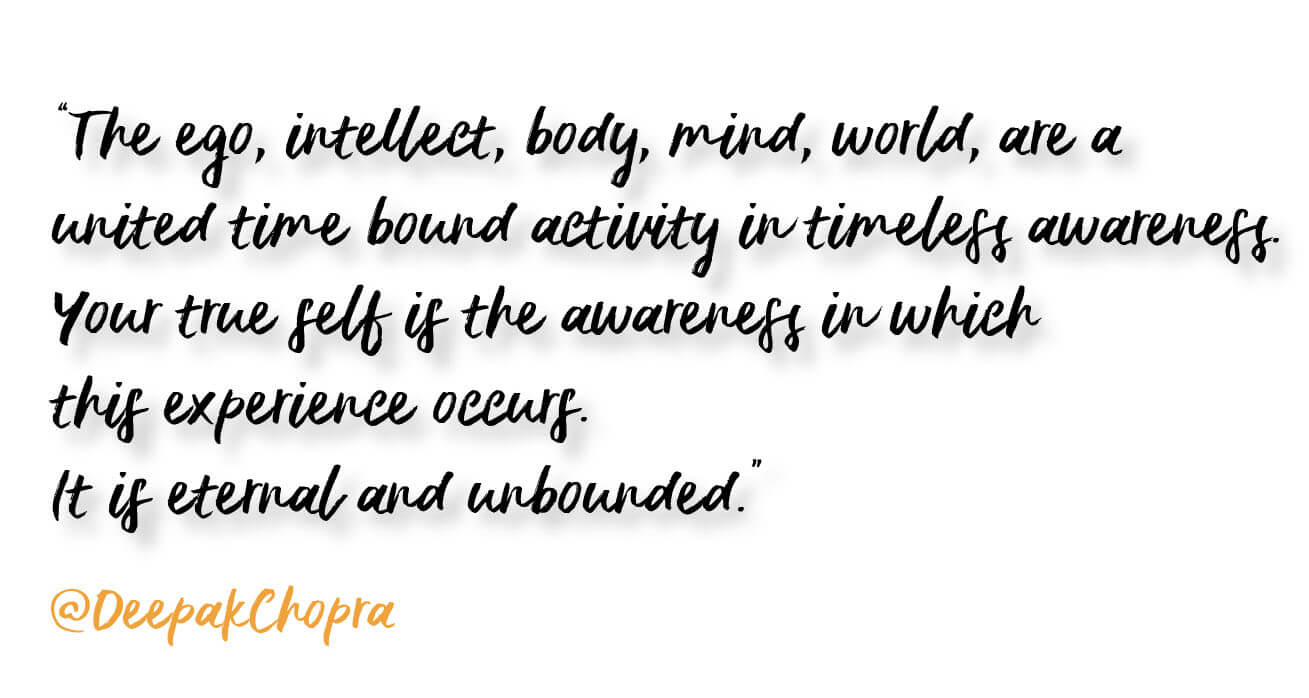
We spend the majority of our days thinking about ourselves, but are we thinking on our true self? By practicing svadhyaya, we benefit through a greater understanding of our own mind, connection with our inner self, our capacity for compassion and are ultimately able to navigate our lives insightfully.
(Read on in Svadhyaya: Spend a Lifetime Getting to Know Yourself & Deepening Your Yoga Practice.)
During These Times of Stress and Uncertainty Your Doshas May Be Unbalanced.
To help you bring attention to your doshas and to identify what your predominant dosha is, we created the following quiz.
Try not to stress over every question, but simply answer based off your intuition. After all, you know yourself better than anyone else.